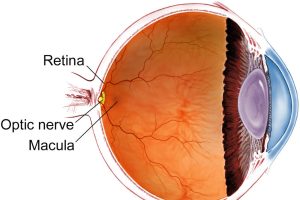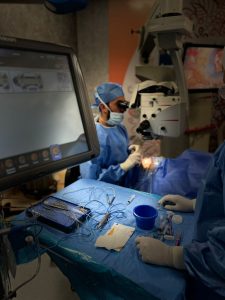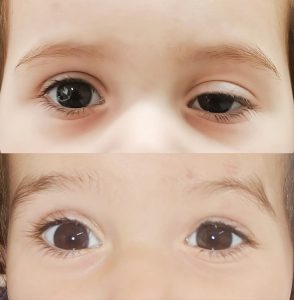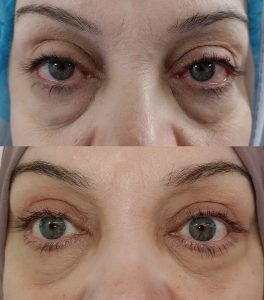Retina & Vitreoretinal Disorders
Retinal diseases
Retinal diseases vary widely, but most of them cause visual symptoms. Retinal diseases can affect any part of your retina, a thin layer of tissue on the inside back wall of your eye. The retina contains millions of light-sensitive cells (rods and cones) and other nerve cells that receive and organize visual information. Your retina sends this information to your brain through your optic nerve, enabling you to see. Treatment is available for some retinal diseases. Depending on your condition, treatment goals may be to stop or slow the disease and preserve, improve or restore your vision. Untreated, some retinal diseases can cause severe vision loss or blindness.
Types
Common retinal diseases and conditions include:
- Retinal tear. A retinal tear occurs when the clear, gel-like substance in the center of your eye (vitreous) shrinks and tugs on the thin layer of tissue lining the back of your eye (retina) with enough traction to cause a break in the tissue. It’s often accompanied by the sudden onset of symptoms such as floaters and flashing lights.
- Retinal detachment. A retinal detachment is defined by the presence of fluid under the retina. This usually occurs when fluid passes through a retinal tear, causing the retina to lift away from the underlying tissue layers.
- Diabetic retinopathy. If you have diabetes, the tiny blood vessels (capillaries) in the back of your eye can deteriorate and leak fluid into and under the retina. This causes the retina to swell, which may blur or distort your vision. Or you may develop new, abnormal capillaries that break and bleed. This also worsens your vision.
- Epiretinal membrane. Epiretinal membrane is a delicate tissue-like scar or membrane that looks like crinkled cellophane lying on top of the retina. This membrane pulls up on the retina, which distorts your vision. Objects may appear blurred or crooked.
- Macular hole. A macular hole is a small defect in the center of the retina at the back of your eye (macula). The hole may develop from abnormal traction between the retina and the vitreous, or it may follow an injury to the eye.
- Macular degeneration. In macular degeneration, the center of your retina begins to deteriorate. This causes symptoms such as blurred central vision or a blind spot in the center of the visual field. There are two types — wet macular degeneration and dry macular degeneration. Many people will first have the dry form, which can progress to the wet form in one or both eyes.
- Retinitis pigmentosa. Retinitis pigmentosa is an inherited degenerative disease. It slowly affects the retina and causes loss of night and side vision.

Symptoms
Many retinal diseases share some common signs and symptoms. These may include:
- Seeing floating specks or cobwebs
- Blurred or distorted (straight lines look wavy) vision
- Defects in the side vision
- Lost vision
You may need to try looking with each eye alone to notice these.
When to see a doctor
It’s important to pay attention to any changes in your vision and find care quickly. Seek immediate medical attention if you suddenly have floaters, flashes or reduced vision. These are warning signs of potentially serious retinal disease.
Risk factors
Risk factors for retinal diseases might include:
- Aging
- Smoking
- Being obese
- Having diabetes or other diseases
- Eye trauma
- A family history of retinal diseases
We’re Setting the Best
Standards in Eye Surgery !
Cost Effective
LASIK eye surgery is a cost-effective vision correction option that can help you eliminate the need for glasses or contacts. We offer a variety of procedures to suit your needs, all at an affordable price.
Advanced Laser Technologies
Your eyes are deserving of the most advanced technologies accessible today. We keep up to speed with the most recent procedures and only utilize the most up-to-date equipment.
Fast and proficient
We recognize that your vision is very important to your mental and physical wellbeing. As a result, we make every effort to operate quickly and efficiently to ensure that your vision is restored as soon as possible after you schedule your appointment with us.
Experienced and Competent
Our team of highly skilled and experienced surgeons are dedicated to providing you with the best possible care. And our friendly and knowledgeable staff is here to help guide you through all steps of the process.







